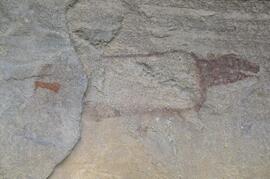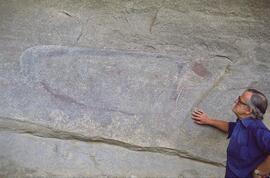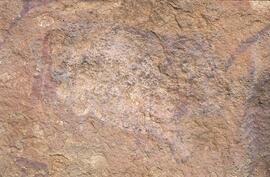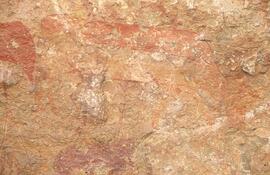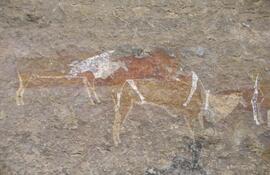LEE LEE-RARI-LEE-RSA-FRN1-27.jpg
·
Item
Part of Lee, Neil
Rain-making was one of the San shamans’ most important tasks. The southern San thought of the rain as an animal. This animal was an amorphous quadruped that generally resembled a hippopotamus, but it could also look like an ox or an antelope. A male rain-animal, or rain-bull, was associated with the frightening thunderstorm that bellowed, stirred up the dust, and sometimes killed people with its lightning. The female rain animal was associated with soft, soaking rains. Franschhoek I
